This is your life: How our dream of freedom was stolen and replaced by FUD.
How did we lose that dream and can we ever get it back?

Today we live in an environment of FEAR UNCERTAINTY and DOUBT (FUD)
But there was a time, not so long ago, when we had hope in our hearts, a vision of a better future and a belief that peace could be attained.
Where and when did it go wrong?
In 1994, I was in my final year at university, and in June of that year, along with thousands of other students, I was preparing for life outside the pleasant environment of higher education, and looking forward to the beginning of a promising career.
Looking back now it seems so long ago that one would think that my memories would have somewhat faded, or at least, become a little frayed at the edges. But in fact, it seems I can remember almost everything of that last month in high resolution detail. And one memory that immediately springs to mind is that there was one song that seemed to captured the mood of that summer. It was first released in 1991 but had remained a popular choice in nightclubs, private parties and radio stations. It was one of those songs that always seemed to be on the radio and everywhere you went, someone was either humming it, or whistling along to the tune.
The song was called This is Your Life, by the band was called Banderas, and the song chorus went like this:
“This is not a story, this is not a book, this is your life.
This is not a play, or TV show you’ve seen, this is real life.”
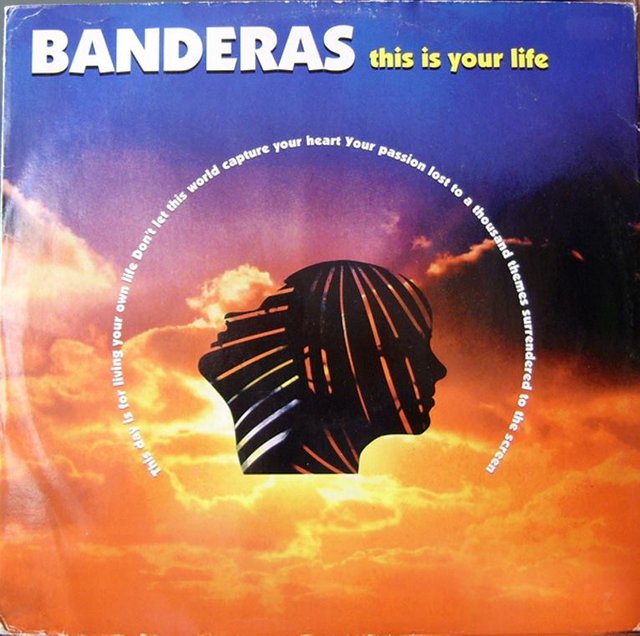
The theme was centered around the importance of self-belief, the value of being honest, finding your purpose in life and the importance of holding onto your dreams.
As pop songs go it seemed a decent message and one that captured the imagination and sentiments of the latest generation of bright young graduates, most of whom believed were facing a bright future.
Optimism among students would not normally be considered as anything unusual, but in 1994 the mood should have been quite the opposite. The world was still in financial disarray and trying to recover from the financial crash of 1987, (known as Black Monday) which had brought record bankruptcies, record job losses and stimulated a rather bleak outlook. And yet despite this, there appeared to be a definite positive feeling in the air.
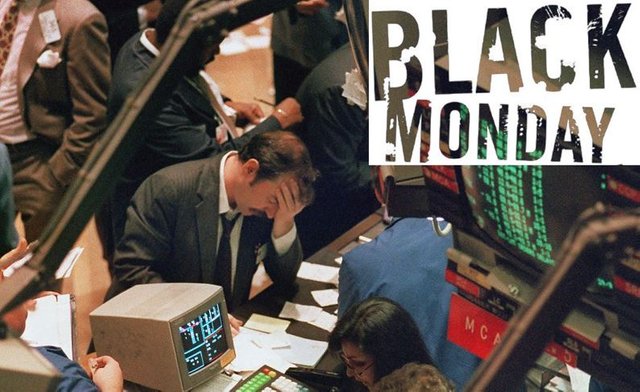
I had entered university life rather late at the age of 26, and even though I was still a relatively young man, in the eyes of higher education, and of my fellow students, I was considered a mature-student.
After three years of study, I suddenly found myself in the position of being a graduate who was now only one year away from knocking on the door of thirty. By now, most 29-year-old men would have been well on their way in their chosen career, whereas I had not even begun.
I secretly envied my fellow students who were young, bright, with an average age of 21, and had their whole life ahead of them. Truth be known, it was not particularly their youth I envied, but more the fact that they had some years in which they could afford to make mistakes or bad career choices, and still be young enough to get back on track.
I, on the other hand, felt that this was my last chance for a new start in life. I comforted myself with the logic that my extra years of life experience would at least give me some advantage in getting myself onto the career ladder. I had already had various types of work experience before deciding to finish my education, and so I had at least some idea of how the job market functioned. However, it was obvious that my fellow students had absolutely no idea what was ahead of them. University life was all they knew, and I knew they were in for a shock.
The fallout from the financial catastrophe meant that jobs were in very short supply, therefore only those who had the drive and the gumption to get off their backsides and relentlessly hunt for a job, would be the ones who managed to get a foot in the door. Almost every day there were grim reports of companies closing and ever more job losses reported in the newspapers and on TV news channels. And yet my younger colleagues did not seem to be concerned about this at all.
I figured they were either just naive, had chosen to ignore the problem, or perhaps did not quite grasp just how bad things were. I, on the other hand, was fully aware of the severity of the situation, and as such it would only have been natural if I felt at least a bit apprehensive about the future. And here´s the weird thing, I did not.
Instead, just like everybody else, I genuinely believed that the future looked bright.
But considering the dark financial situation, how could that have been so?
It is perhaps not so much of a mystery when we take a closer look at some of the world events that were taking place during that time.
In 1989 The Berlin wall was torn down, bringing with it an end to the cold war. The invention of the World Wide Web was also in this year.
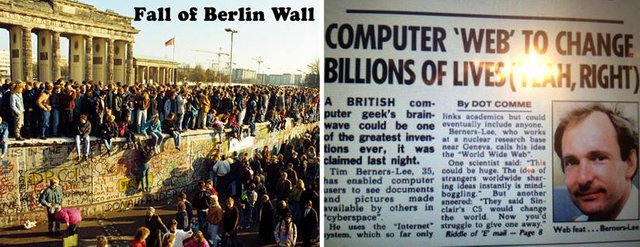
In 1990 -1991, Nelson Mandela was freed after spending 27 years of his life in prison, and the racist laws of apartheid were abolished.
Mikhail Gorbachev was elected president of the Soviet Union signifying a change towards the dismantling of the Communist party. He was also given the Nobel peace prize that year.
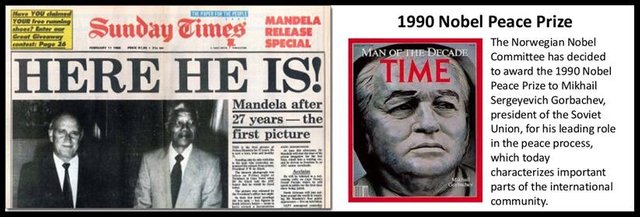
A year later in 1991, this change brought the end of the Soviet Union.
Another ending that year was that of the era of the Iron Lady, British Prime Minister, Margaret Thatcher.
In 1992 a youthful Bill Clinton was elected 42nd president of United States.
Microsoft’s Windows Operating System was released, and the unrestricted use of the internet began to take off.
In 1993
The epic 3-hour film, Schindler´s List is hailed as a masterpiece receiving 7 Academy awards, 6 BAFTA awards and 2 Golden Globe awards. It also provoked an unprecedented emotional reaction in cinemas around the world.
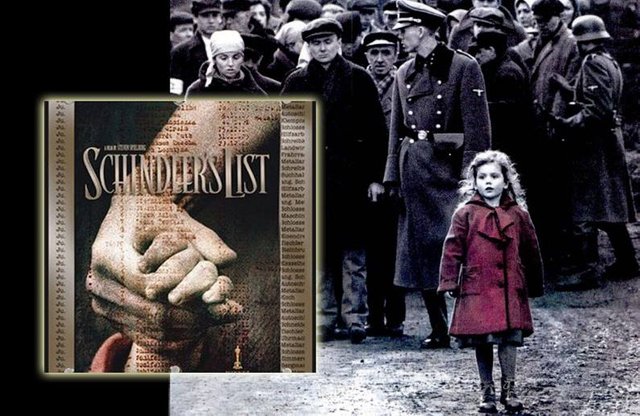
In 1994,
Nelson Mandela was elected as President of South Africa, an event previously thought to be an impossibility and for the first time American and Russian missiles were no longer pointing at each other.
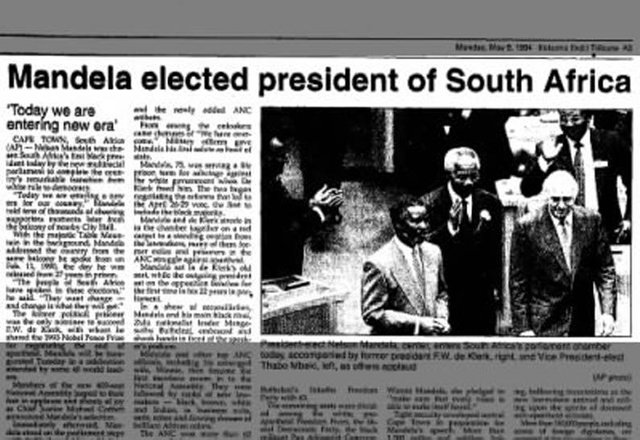
And in the autumn of that year, a film that was ignored by the Oscars, and to some extent by the media, would come to penetrate the hearts of an entire generation and be listed as one of the top 3 greatest films for the next 20 years. The Shawshank Redemption, starred Tim Robbins and Morgan Freeman, was directed by Frank Darabont and was based on a short story by Steven King who based it on real events.
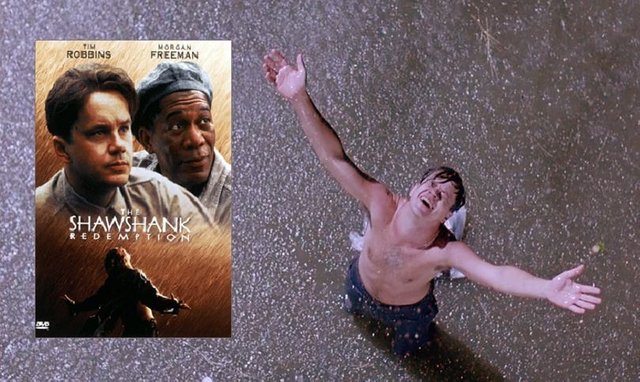
Some might say that a movie is just a movie, and as such dismiss that it might have any social effect.
I would strongly disagree and argue that certain films can, and do, have an enormous effect on society, just as art and music can. The Film genre has proven to have the power to move us both emotionally and spiritually, as well have a huge inspirational affect. With that in mind one cannot ignore the effect of Schindler´s List. A film that virtually transported us back in time to the dark period of the Nazi regime. A film so powerful it made all who watched it feel like they were actual witnesses of those unspeakable crimes against humanity, with some scenes almost unbearable to watch. When I watched that film, in my home town, the entire audience stood up and clapped for several minutes with the majority in floods of tears.This was happening in cinemas around the world. The powerful emotional ending of the film captured the traits that is what we all treasure as being human; Empathy, forgiveness, courage, love and redemption.
The Shawshank Redemption, the story of a wrongly convicted lawyer who receives a life sentence for the murder he did not commit, and who, after spending nearly two decades in prison, eventually escapes in an ingenious way. Eventually this movie would come to symbolize hope in the face of despair, salvation from suffering, and the meaning of true friendship. All admirable human characteristics.
I remember going to watch this film with two of my closest student friends during that final year at university. We knew someone who worked at the local cinema who had told us that he could sneak us in without paying. We just could not resist that offer and so one night we decided to take him up on it.
We had no idea what films were being shown then, we just went because we knew we could get in free and that was enough of a reason. Once at the cinema we quite fancied watching Pulp Fiction but the guy we knew was not in charge of that cinema room. We were somewhat disappointed but asked him what film could we watch? He told us it was The Shawshank Redemption, and he tried to convince us it was good. We thought it sounded shit and were reluctant to watch it to say the least, and on top of that it would turn out that we would be the only three people in the entire room. This was also NOT very encouraging. However, we decided we might as well watch it.
I can tell you now that the three of us were in floods of tears at the end of that movie and when we left that room we had our heads bowed down so no one could see we had been crying. We all had one sentence from that movie spinning around in our heads: “Get busy living or get busy dying.” It had a huge inspirational affect upon all three of us and so it seems it has for others for over two decades.
The freeing of Nelson Mandela gave the world a powerful message of equality and solidarity as well as a huge boost in the belief of moral justice.
It is probably a little-known fact that the cause for the release of Nelson Mandela being brought to the attention of the world was partly thanks to a British Ska band, who rose to popularity in the 1980s called The Specials. They wrote a song called ‘Free Nelson Mandela.’ I remember watching the song being performed on the BBC weekly pop music show, Top of the Pops, in 1984.
<iframe width="560" height="315" src="
Very few knew who it was they were singing about, but everyone loved the catchy tune and the name stuck in your head. I guess after a while people became curious as to what the fuss was all about and once they understood there was an injustice done, got involved to help Mandela´s cause. I truly believe that the Specials were instrumental in bringing about the release of Nelson Mandela, which means they were also instrumental in bringing about the end of Apartheid. This was evidence that when we all work together we can bring about change for the better and over turn injustices.
Perhaps now the world could learn to put aside racial differences and we could all begin to see each other as one race, the human race.
Perhaps now we could relax and begin to heal from the terrible abuse we have done to one another.
Such crimes against humanity should not be forgotten, for forgetting would mean it could happen again. But perhaps we could learn to forgive, for forgiveness is also about freedom. A way of freeing oneself from the chains of perpetual hate.
The fall of the Berlin wall, and the end of the Soviet Union, also gave birth to a new beginning for our dream of freedom. Freedom of speech would now be for all and freedom of expression would define who we are.
Perhaps now we could stop worrying about the threat of nuclear war and begin to build a new world and a new future based upon trust instead of fear.
And the tools we would use to create this new future would be with two world-changing emerging technologies, the computer and the internet.
During the late 1980s and the beginning of 1990s, the technological miracle of the home computer had been igniting innovative ideas as well as creating new job opportunities. And the internet, although still in its infancy, offered a future of boundless possibilities.
In 1994, the world of money may have been still in a mess, but the world itself seemed to be going through some healing and evolving process.
Sure, there were still awful things going on around the globe, but no one can deny the huge impact of so many positive events happening over such a short period of time.
Therefore, perhaps it is no wonder there was a positive feeling in the air.
For now, we had a new dream, and in our hearts, was a new hope, and we were all eager to begin on the journey into the brave new world.

Looking back now as I write this, I can´t help feeling a deep sense of sadness and regret, for it is clear that this bright future never materialized. Instead, our dream became a nightmare, our hope has turned into FUD - Fear Uncertainty and Doubt. We have all become cowards, frightened to speak out in a world where our freedoms have gradually been taken away.
Instead of a free world without a border,
we have all become prisoners of a new world order.
The top one percent own and control most of the worlds wealth. Social mobility has virtually come to stand still. The belief that anyone, through shear hard work and ingenuity could become a success, has all but been abandoned. No one trusts the banks, the media or their governments anymore.
Broken is a word I hear often these days. Broken dreams, broken trust, broken industry, broken economy, broken health service, and broken Britain.
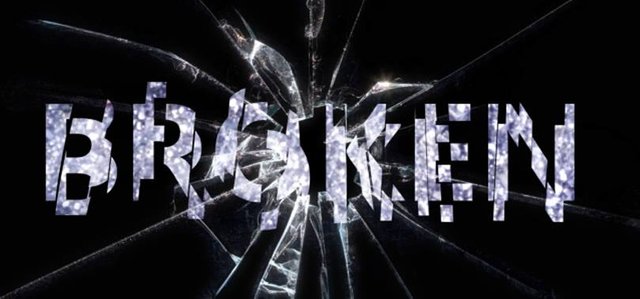
The British with their great sense of humor find original ways to laugh about the whole mess, and humor is indeed a good survival method. But we all know that behind the smile of every clown, lies the tears of hidden despair. But this time I suspect that behind that mask lies also repressed anger and frustration. The anger comes from the fact that no one seems to have been held accountable, and the frustration because no one has any idea how to fix the situation..
I suspect that the 1990s may well have been the last time we eagerly looked to the future, for it seems, for a time at least, that the TV viewing masses were obsessed with nostalgia. The public’s demand for TV shows that portrayed the past simply sky rocketed. Downton Abbey, Heartbeat, Charles Dickens and Sherlock Holmes adaptations, were all hugely successful and were sold all around the globe.
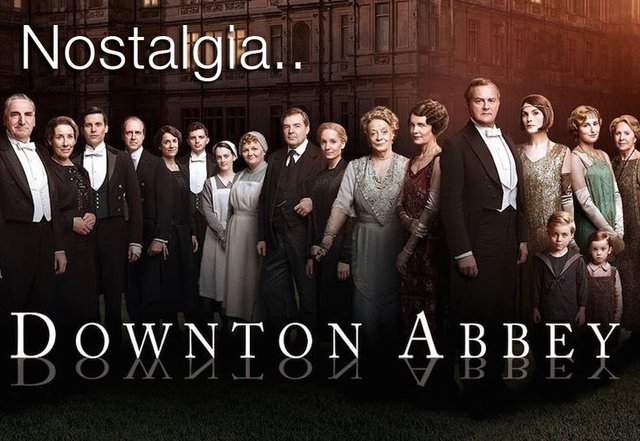
In contrast to obtaining comfort from the past, Hollywood has also tried its best to give us hope in portraying the future as an extension of the present.
Films such as the Hunger Games, Divergent, The Giver and In Time, portray oppressed societies that are divided by wealth and privilege, that are ruled by either a corrupt government, or a mighty ruthless dictator. But don´t worry folks, if such oppressive regimes ever became a reality, it would always be brought down by our collective desire for freedom. The message from Hollywood is clear: A hero, or heroes, would always emerge from such regimes who would inspire us, or free us, from its grip of injustice.
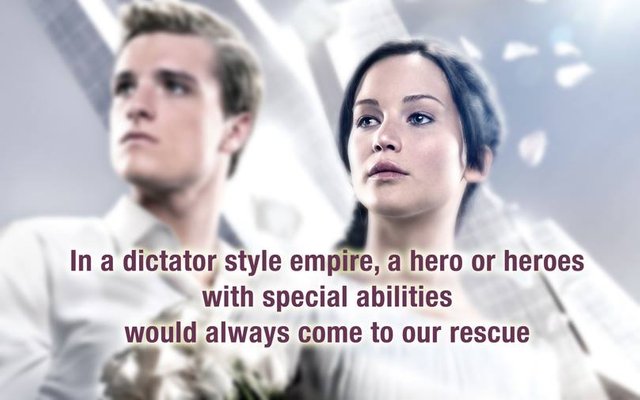
However fantastical these films might seem, there is in fact a basis of truth in this concept.
For indeed, history has shown that such reluctant heroes do emerge out of the seeds of tyranny and oppression. Without wishing to go too deep into this, if I use the Nazi empire as an example, I can think of at least four such heroes.
And Oscar Shindler, who surely needs no explanation.
Sophie Scholl and her brother Hans, were German students who were beheaded for printing leaflets informing the truth of how Germany was losing the war on all fronts and expressing their opinion that Hitler should be kicked out of office.
Fritz Gerlich was a journalist who, from the very beginning, repeatedly warned of the price Germany would pay if they ever allowed Hitler to come into power. His persistent attacks on Hitler lost him his job after which he began his own newspaper just so that he could continue the fight. When Hitler finally came into power Gerlich was arrested tortured and never seen again.
Claus von Stauffenberg was a Colonel in the German army who tried to assassinate Hitler but failed. Afterwards he was quickly caught and shot. Hundreds named in the plot were murdered slowly in the most horrific of ways.
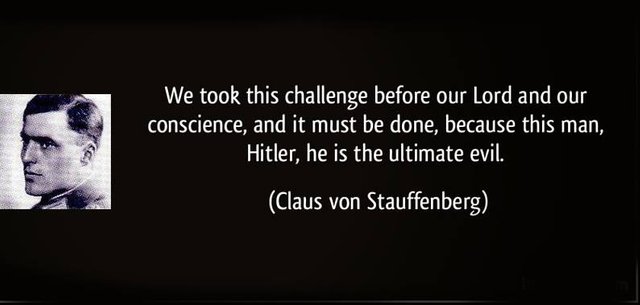
The problem with the real-life heroes is that it is usually only after the revolution is over, or the evil regime has collapsed, that they are retrospectively declared heroes. All the brave souls I have just mentioned were at first considered traitors and paid for their defiance with their lives. If Hitler had won WWII, they would still be classed as traitors today.
Does that mean then, that who is classed as a hero and whom a traitor is determined by who is the dominant authority at the time?
The problem with fictional heroes portrayed on the silver screen is that the audience has a supreme view point of being able to see the story from every angle. They get to hear every secret corrupt government discussion, decision and action. Therefore, there is no confusion as to whom the oppressors are and who are the freedom fighters and they are left in no doubt of the integrity and intentions of the hero of the story.
And so, what of today?
If there is a general feeling of distrust, unfairness, corruption, fear and loss of civil liberties, and if history shows that, during such troubled times reluctant heroes will always arise, then where are they? Well, if we use the concept that today´s traitors might be tomorrows heroes, perhaps if we bother to look a bit closer, we might be able find them.
‘Who in the last decade have either been silenced, suppressed, marginalized, or criminalized: For speaking out against the erosion of civil freedoms, such as privacy?
For speaking out against government corruption?
For speaking out against injustice?
For daring to see the world in a different way?’
I posted these questions into various internet forums and asked for suggestions of possible modern day heroes, and these are the names that came up:
Arron Swartz
Barret Brown
Chelsea Manning
Julian Assange
Edward Snowden
The hacktervist group knowns as Anonymous.
All these were either thrown in prison, had false charges brought against them, had to leave their country or were driven to suicide.
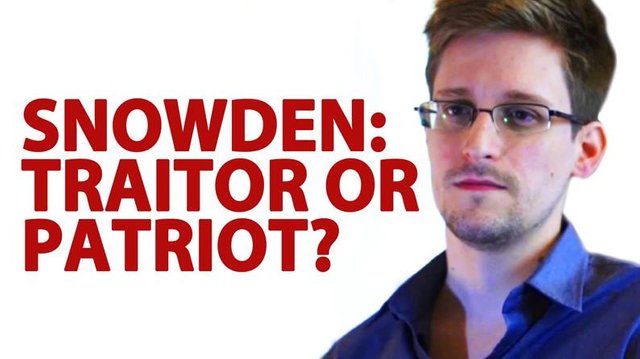
Perhaps if they had been blessed with special powers or super human abilities they might have had a chance. Unfortunately, all they had was their intelligence, their integrity and their conscience.
How did our dream slip out of our hands? How could we have let it happen?
If I close my eyes, and listen very carefully, I can almost hear people screaming out the answer. For at first, the answer does appear to be an easy one. The Banks!
In the 1990s most people generally trusted their own Bank and I would even go as far as to say that bank managers were respected in society.
Not anymore!
Speaking personally, I have always hated the very idea and concept of banks. In fact, from a very early age I had an innate distrust of them. For a long time, I could not explain why. My father was an accountant, and I remember as a young boy, he tried to explain how companies always tried to cheat the tax system and that you can´t always trust what you see in the account book.
Perhaps I subconsciously learned from this lessen that money corrupts and therefore if it was the banks that had all the money, then the banks should not be trusted.
Despite my own personal feelings about the financial system, I still eagerly opened a bank account upon starting university to accommodate my student loan. And, when I eventually got my first job, I ran all the way to the bank to pay in my first pay check.
There is no doubt that banks were largely responsible in the destruction of our new world dream. But surely things are never that simple? I mean, life is never that simple. And one thing we should realize is that banks are run by people.
And people are complex.
Complex because of our astounding brain, which is the very thing that sets us apart from all other forms of life. Complex because of our ability to have feelings. Feelings of love and feelings of hate. Complex because we have hidden desires and hidden agendas. Complex because we can dream and can realize those dreams.
Human beings are in fact the single most complex entity in the known universe simply because it is only us human beings that possess consciousness and can contemplate. One could argue that, without our ability to observe and contemplate the universe, perhaps the universe would not even exist?
As far as we know, no other creature has ever looked up at the night sky and wondered about the great mystery of life. For millions of years, life existed merely for existence sake. And yet, despite all this human complexity, I suspect the reason why our new world dream was so tragically stolen, is in fact a simple one. It all comes down to one ugly human trait. Greed.
The now famous “Greed is good” speech by the character Gordon Gekko in the 1987 film Wall St, may have been the spark that lit the fire. The story might have been fiction but it´s stark message was taken as fact and as the boundaries between film and reality become ever more blurred. This powerful speech, delivered by the actor Michael Douglas, hit a primal nerve. In a way, it coerced an entire generation into reaffirming their already growing belief that greed was not a bad thing. And one could argue that it worked because never in history have we ever seen greed realize itself on such an enormous scale.
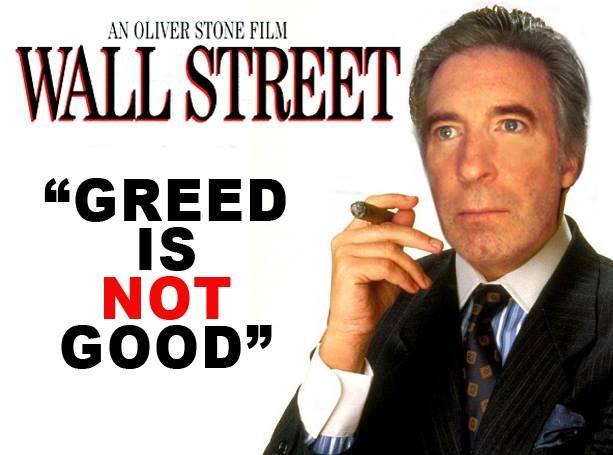
But the truth is, greed is not good and never has been good. Deep down everyone knows this, but greed is such a powerful force of our dark side that it can often overpower even the most honest of citizens.
My father once told me: “Everyone has a price. And it is the person who is ‘incorruptible’ who has the highest price of all.”
The proof that greed is a failed concept lies in its ultimate outcome. If greed was played out to its full conclusion, it would inevitably fall apart. For if every person on the planet lived life with greed as their main motivation, then no one would do anything for anyone else unless there was something in it for them. Why should anyone bother to help the sick or the dying unless there was a profit in it?
It is often the small details of life that reveal the failure of greed as a concept.
For example, why should a nurse bother to give up a 15-minute break for a suffering patient asking for help? Perhaps a nurse driven only by greed might turn around to that patient and say: “Of course I will help you, but first you must promise to leave me something in your will.”
When an ambulance driver finishes a long evening shift and then is suddenly told that another emergency call has just come in, why should this ambulance driver bother to turn around and get straight back into the ambulance? Perhaps an ambulance driver motivated only by greed would respond: “I want to be payed double the rate or I´m going home.”
Or what about the helicopter rescue team that risk their own lives every time they fly out into a storm over the ocean. Do these brave individuals do what they do to get huge cash bonuses? Or is it because there might be a chance that someone has survived the plane crash and is desperately holding on?
And what about the firemen who ran into the world trade center on 9/11? Does anyone for a second believe they were motivated by money?
Ask yourself this question right now: Why should anyone bother to help anyone else?
I typed in the title of the song “This is your life” into YouTube. Hearing it again after all this time brought back memories of the young student full of hope and ambition. I played it again, but this time I listened a bit closer to the words and I noticed something rather curious. The message it was portraying seemed to be referring to the world of today rather than the world of twenty years ago. Here is the first verse of the song:
“Where is the purpose in your life? Where is the truth?
Do you remember your hopes, your dreams, they are no longer your own.
This day is for living your own life. Don't let this world capture your heart.
Your passion lost to a thousand themes, surrendered to the screen”.
<iframe width="560" height="315" src="
It seemed quite uncanny. For to my ears it seemed to be talking about modern concerns.
Suppression of the truth, media brainwashing, and the lost generation.
This song had been written before the death of Princess Diana,
before 9/11,
before the war in Iraq,
before the financial collapse of 2008,
before Wikileaks,
before the News of the world phone tapping scandal,
before the sickening revelations of Jimmy Saville and
before the earth-shattering bombshell about the NSA detonated by Edward Snowden.
Where is the truth?
What really happened on 911?
Was the death of Princess Diana really an accident?
Was the invasion of Iraq about liberating a nation or was it really about oil?
These days that no one really knows what to believe anymore. The government machine has become so clever at covering or reinventing the facts that it just seems impossible to be certain of what is real and what is merely advanced rhetoric.
For generations, we have relied upon the television and newspaper industry to tell us the truth. It was their job to uncover the hidden truth and highlight corruption, perhaps most famously during the Watergate scandal.
Not anymore!
News itself has become more about entertaining than about informing. The bigger and more dramatic the event the bigger the viewing figures. The bigger the viewing figure the bigger the advertising contracts.
Sex sells and death compels.
Sex scandals and war is all that ever seems to be on the news.
I don´t know a single person who believes a word that is said on television these days.
Even the holy grail of truth, the BBC, lied and tried to cover up accusations about Jimmy Saville.
How can we ever trust the media again?
Once thought of as a tool invented by the devil, suddenly people were saying thank God for the internet.
For at least on the internet it was impossible to suppress the truth.
That might have been the truth at one time. Not anymore!.
Wikileaks tried to show us the truth but its founder Julian Assange was quickly and brutally gagged for doing so, all in the name of national security and for our protection.
The hacktervist group Anonymous tried to use the idea of the non-entity as a way of revealing the truth. But the truth was that these hackers with a conscience were not non-entities.
A new type of somebody NOT motivated by the society driven concepts of greed.
These hacker knights who worked long nights
did baffle the powers that be.
Well at least for a time, until it was called crime
and then they were locked up and they threw away the key.
MAKE NOTE OF THE NEGATIVE WORDS/PHRASES HIGHLIGHTED IN THIS NEXT SECTION
The tragic death of princess Diana in 1997 brought a wave of outrage against the paparazzi the result of which I believe sparked the beginnings of public distrust towards the media and raised questions of ethics within the industry.
But it was the unforgettable events of 9/11 that unquestionably began a new era of fear and paranoia. Many ordinary US citizens, as well as professionals, architects, scientists, demolition experts and even Hollywood actors, sincerely believed that the truth of the events of 9/11 were suppressed.
Then came the revelation that there were no weapons of mass destruction in Iraq, which was supposedly the main reason for the invasion in the first place. Added to this were the shocking military secrets released by Julian Assange on his notorious website. Wikileaks brought about accusations of lies and deceit against the US government bringing shame upon the country as it began to lose its reputation as the moral beacon of the world.
Such cover ups and misinformation has created deep feelings of betrayal in the public mind worldwide. The surprising events of the News of the World newspaper scandal caused public outcry. Accusations of phone hacking and police bribery were brought against the owner of the newspaper, media mogul Rupert Murdoch, whom people said was a man without conscience. In the end the newspaper had to shut down for its blatant abuse of power. The atrocious scandal of TV personality Jimmy Saville shocked the British public to the bone. Someone who had previously been loved by an entire generation turned out to be a child sex abuser. The words disgust, manipulation and predator were often used to describe this monster in newspaper headlines at the time.
And finally consider the case of Edward Snowden. The man who dared to let the cat out of the bag, revealing details of extensive global surveillance programs developed by the National Security Agency. It is difficult to discover what the public really feel about this. But I often hear people talking about Snowden and the most common themes discussed are government betrayal and oppression. But when they used these words they usually whisper them and look around to see if anyone is listening.
I hope you noticed that I high-lighted in bold text all the negative descriptive words. Here they are listed.
Distrust, paranoia, uncontrolled greed, lack of morals, gross irresponsibility, abuse of power, without conscience, disgust, manipulation, predator, betrayal and oppression.
Apart from the sheer ugliness of this word list that has come to dominate our daily vocabulary, there is one word that is not in that list that really should be. And that word is so powerful that we tend to shy away from it, avoid discussing it and even pretend it does not exist.
But the truth of the matter is that every single ugly word in this list are words all used to describe the meaning of the missing word I am talking about. Psychopath.
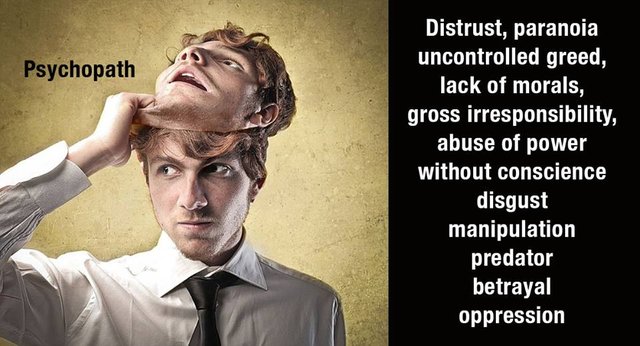
In 1994, When I was leaving university, I cannot ever remember a single time ever hearing the word Psychopath. And although we have known of this word for generations, it has suddenly become the word of modern times.
When the financial crash came in 2008, ordinary hard working citizens, and so called financial experts, were caught completely by surprise. In the first few months no one had any idea of just how bad the situation really was. Many thought it would all blow over and simply went on with their daily lives oblivious. It was only when the after effects really began to kick in, enormous increases in government debt, mass housing foreclosures and extraordinary high job losses, that the populous finally began to react.
Understandably, the first reaction was one of anger.
Riots were first seen in Bulgaria, Romania and the Baltic states, and in the January of 2009, there was a large teacher’s strike in France, television employees, postal workers, students and other public-sector workers also protested strongly.
In April 2009, in London, demonstrators stormed the Bank of England, and in May, major protests and riots broke out in Germany, Greece, Turkey, France and Austria.
The world had seen financial disasters before back in the thirties and again in the 1980s. But this crash was the mother of all crashes. Anyone leaving university in 2008 or had just started on their first job would suddenly find that their future was no longer clear and would become known as the lost generation.
After the dust from the 2008 Financial crash began to settle, people began to focus on the how, the why, and who was to blame?
How the crash happened was both incredibly complex and incredibly simple at the same time.
Why the crash happened is even more complex than how. But put in simple terms:
Bundles of high risk housing loans were bundled together into false low risk investment bundles.
These bundles were then sold on by false prophets for false profits to eager, greedy or naive investors.
Who was to blame for the crash eventually became the focus of public attention.
And at first, finding the who, seemed to be obvious. Suddenly, as if from nowhere, the word psychopath was being thrown at bank managers and CEO´s, as they tried to escape from the madding crowd.
One London journalist suggested that those who were eventually found to be responsible for the economic disaster should be charged with war crimes. Considering this crash caused the deaths of millions who lived on the poverty line, I tend to agree.
However, in the end no one was ever really found to be accountable and no one ever accepted responsibility. And the reason for that is not because there was any big cover up or conspiracy but because the truth is that we are all to blame and we are all innocent at the same time.
We are all to blame because we ignored the warning signs, we ignored the corruption signs and we all wanted a piece of the get rich quick pie.
We are all innocent because we were lied to by our leaders, brainwashed by our TV channels, cheated by our banks and swindled by our insurance companies.
Deep down everybody knows that the real criminals that brought the world to its knees are greed, corruption and a lack of public conscience. Again, three terms that aptly fit the psychopath.
The Occupy Wall Street movement sprang up out of nowhere and from then on, the word psychopath began to be used regularly on TV programs, Facebook pages and internet forums. It is said that to find a paedophile one should look to where there are lots of children, but to find a psychopath one should look to where there is lots of money.
Go to the top of the financial tree and you will surely find the psychopath living, thriving and destroying to their non-hearts content.
Since the 1990s and perhaps even before then, we have seen a gradual eroding of the freedoms we once took for granted.
This is a warning that we really must address if we ever wish to get our dream of freedom back.
I believe that these freedoms were gradually taken away from us so slowly and so cleverly that we did not even notice it happening. But if we take a step back and look at the past as one whole picture, then we see that a pattern begins to emerge.
Little by little, step by step the psychopath began to integrate and infect the world of corporations, financial institutions and politics. Not because they had some great plan for a new world order but simply because it is in their nature to strive for power and control. After all, psychopaths have always been among us. However, with the rise of corporations they now had a new place they could go to fulfill their need for greed.
Professor Robert Hare, author of the now famous book about Psychopaths called, appropriately, Without Conscience, has suggested that corporations themselves are inevitably psychopathic in nature and he makes a convincing case (which you can find and listen to on Youtube).
It was surely inevitable that the psychopath would thrive in such an environment. And as technology advanced, the world of money markets became easily accessible, and suddenly we had a global financial system on our hands where everything was connected to everything else. As time passed by the psychopath simply carried on doing what they do best, manipulating, lying, cheating, and betraying, to work their way up the corporate ladder.
Suddenly one day they found themselves right at the top of the tree. And what do we know happens once psychopaths get to the top of the tree? Their mask comes down and the true tyrant appears. Once the tyrant, the dictator is in power, the known phenomenon of a society becoming more psychopathic begins.
This is what I believe has really happened. It was the psychopathic individuals who have stolen our dream of freedom.
There was never a conspiracy for a new world order.
Psychopaths are just not that good at organizing. Look at Hitler, once he gained power he hardly did a thing, delegating the tasks of government to his subordinate. But still he managed to have incredible control over his Reich.
I believe that the psychopath, over a period of many years, as corporate America blossomed, gradually managed to climb higher in the world of politics and finance and once they got there, the environment began to alter to suit psychopathic thinking. This meant that more psychopaths were attracted to this environment and thus the environment for psychopathic individuals thrived. Eventually all the people who were NOT psychopaths, found that they had become the minority. Suddenly those who had a conscience were no longer seen or heard in the corridors of power. In such a situation, nothing can stop the psychopath from having free reign to do whatever they want.
We now know, for example, that many of the giant accounting institutions that were the first to fall in 2008 were full of employee’s who had sent several warning emails to their CEO’s telling them of immoral practices. However, their emails were either ignored or deleted. This is no surprise because the psychopath, now more appropriately termed corporate psychopath, would not see any problem with having a lack of morals at all.
“Why are you bothering me with this. In fact, you´re fired!”
This is not a joke. This really happened.
Many employees who tried to tell their superiors of corruption were fired. And so, fear set among the work force that it was better to keep your mouth shut. After all, workers have a mortgage to pay. The corruption just gets bigger and everyone hopes nothing will ever happen. And all this just because the psychopath has reached the top of the corporate ladder. And so, once all positions of power have been filled by the psychopath, corruption becomes endemic.
I believe that today the psychopath can be found in a position of control in every corporation, political party, financial institution, oil industry, and security services.
And I´m afraid that it is we, the 95% of the population who do have a conscience, that have let this happen. It is our fault because we chose to ignore our conscience and allowed ourselves to be seduced by the concept of greed is good. We came to believe that a heartless selfish driven world was normal.
It´s evolution, right? The scientists told us so.
The author Ayn Rand argued so in her novel Atlas Shrugged. But now we see that this concept does not work in a real human society. The evolution model may function somewhat in the world of finance but it does NOT in the general world of human beings, who mostly wish to live a normal life.
How many people have you ever met whose sole focus in life is the pursuit of power or extreme wealth?
Of course, people want financial stability, but the acquisition of wealth is not usually their primary driving motivation.
With a simple story, I can demonstrate why greed is a failed concept and that it is inherently not a natural part of human nature.
Let’s say that the world´s richest man woke up tomorrow and decided to give every adult person in the UK five million pounds. That´s about 30 million people waking up in the morning and finding this huge figure in their banks account, After confirming that it is not a con trick and it is real, what this person he do? OK lets use one man as an example in this scenario.
He quickly gets dressed gets into his car and decides to go straight to his favorite sports car dealer to buy that Austin Martin he has always dreamed of. However, he soon discovers that the roads are packed with other people all doing the same thing. He eventually gets to the car dealership, but once there he soon discovers it is closed, and all the sports cars have gone anyway because the dealers have quit their jobs and bought all the sports cars themselves. The now disappointed man gets back into his car to see if he can find another dealership. As he drives another eager driver bumps into the back him and causes a small whiplash injury. He phones for an ambulance but finds there is no answer because of course all the ambulance drivers have quit their jobs. Our man soon discovers in fact that all the hospitals, the fire department, the schools, the shops, the garbage companies and so on, have also closed because everyone has quit their jobs. If fact the entire country comes to a standstill.
This is, more or less, what happened in Saudi Arabia because of the country´s oil wealth. Everyone became so much wealthier that no one wanted to do the menial jobs that keep the country running. Their solution to the problem was to import workers from poorer countries to do these type of jobs. If they had not done this nothing the country would have struggled to even function.
But what would they have done if all the countries of the world were as rich as they were? If human beings were really driven by greed, all you would have to do to bring a country to a stand-still, would be to make everyone rich.
However, if such a scenario was ever to happen I am certain that ambulance drivers, doctors, people in the caring profession, would still continue their work because greed is not their main motivation in life.
I believe that human-kind is altruistic by nature.
The psychopathic individual is greedy by nature.
Without this altruistic trait of 95% of the human race, the psychopath could not exist.
Psychopathic individuals are a form of parasite.
They fed everyone the idea that greed was good because this was what they themselves believed.
This is how the psychopath stole our dream of freedom and created an environment of Fear Uncertainty and Doubt. We absorbed this concept deeply and became enthralled to it. Once that had happened, the psychopaths had us all under their control like a gang of parasitical drug dealers. A when a society is living in FUD this is the biggest evidence that it is living in a the known phenomenon of a psychopathic society.
The question now is, can wean ourselves off this drug, and return ourselves back to our intended future?
Thank you for reading and visiting my blog and I welcome you back next time
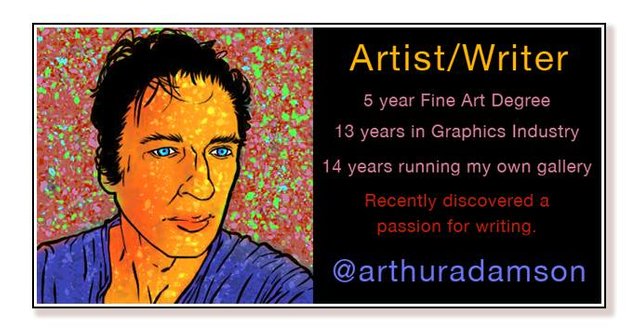
Respect! Thank you for your writing about the past two decades, that helps remember of the things happened. I have better line of sight of the near past. Despite to what happened by now, I'm optimist, and hope this nightmare will be over! The evil forces feel their destiny, and love will overcome!
I agree, 95% of the human race are basically good people who have weaknesses and occasionally do bad things. But they are inherently good and this is what will save us and eventually take back the world that was stolen from us.
Thank you for a great response @kalemandra
There is much science on the subject. The evidence are so uplifting it almost become a story to good to tell.
One institution that has enormous science for several hundred years are the military. They have hard evidence that 98% of the people are so good that they will not shoot at the enemy if they can get away with it (your number of 95% are to low @arthuradamson).
So what about the 2% ? Well, they shoot the enemy but for different reasons. 1% of them shoot only at the ones that actually kill people to save as many lives as possible.
The military themselves has stated in their reports that they find nothing else than that these people are above normal good people and not afraid to die themselves.
So what about the 1% we have left? Some of them are sick (from previous wars, lack of nutrient etc.)and some are psychopaths.
The military want to solve this problem that people are so good and do not shoot to kill. So we get drones (more like videogames) and different "you do not feel the war" activities.
So @kalemandra it seems you are on the winning side (at least with the majority), and love will overcome!
Yes I have read something of this research regarding the military literally having to brainwash soldiers into being "psychopathic" just so they can pull the trigger.
The 95% figure for psychopathy is the current percentage based upon the number of them rising in prisons and recent surveys and interviews done in the financial sector by Dr Hare himself.
Psychopathy is rising and psychiatrists are nor sure why but there is no doubt that our current society is bordering on a psychopathic based regime.
The figure could be lower but it could even be higher.
Wow, that was bad news. I agree it can be the case. Psychopathy is truly dangerous. I am from Norway and here they have started to do something about the prison system. It works, and even the United States prisonsystem says: "Four years ago we did not think that it would work, but the low numbers in Norway now speak for themselves". A little light in the dark.
I think we are in for somme big crises ahead before it gets better. I am a positive person so I do not want the pain it brings people, but it is coming.
Anyhow, have a good day @arthuradamson
Takk skal du har
Hello @arthuradamson
Fantastic post you made, if one want to think about it, thank you.
Have a nice day, you deserve that after this mega post.
The post below is also a viewpoint on the matter.
Posted Mar 25, 2017 by Martin Armstrong
https://www.armstrongeconomics.com/
COMMENT: Mr., Armstrong, your solution video is splendid. What you say about government only interested in a crisis and not preventing anything makes perfect sense. I believe it was George Washington who said: “Government Is Not Reason, It Is Not Eloquence — It Is Force”
Thank you for standing your ground.
FH
ANSWER: I do not believe Washington ever said that. I tried to find the source and could not. The earliest claim is only from 1902 with no hard evidence. Yet, the words are very true. It is just questionable whether anyone in government, with the exception of Thomas Jefferson, would have ever dared to utter such a phrase.
What I can equate this to is Aristotle and Plato. To them, the Greek doctrine is very clear on this subject. The very essence of the state consists of is the essence of force. The existence of force is for Plato and Aristotle alike, a sign not of the state dignity or Majesty, but of a state’s utter failure. The more a state moves toward economic bankruptcy, the more they will use force to retain power.
The view of Aristotle and Plato, with respect to the state’s exercise of power, comes from the struggle between conflicting misconceptions of what is good or being happy. Insofar as men conceive the good or being happy, this happiness is not actually the primary exercise of virtue personally, but it is the exercise of virtue in governing an ideal state. The best states are closely knit together so that the interests of one person are the same as the interests of all. Consequently, a person who acts for his or her own interest must also act for the interest of all fellow citizens. In a way, this is Adam Smith’s Invisible Hand. It therefore would follow that discussions of Aristotle’s altruism are generally misconceived. From a collective standpoint, people are united politically and the state therefore represents their common agreement. However, when that unity breaks down into opposing forces due to self-interests as we have today (left v right), then the state historically turns to force to retain its own power. The good of the individual is subordinated to the survival of the state. Since all groups eventually divide along opposing philosophic concepts, whether a perfect union ever exists is typically measured a brief periods of prosperity in between moment of utter upheaval and chaos. The key is to eliminate the self-interest of the state which is the power of force and then if the two factions are restrained from dominating the other, then society can prevail undisturbed. The likelihood of that being sustain indefinitely appears to defy history and cycles.
Consequently, “Government Is Not Reason, It Is Not Eloquence — It Is Force” is a correct statement. It was not spoken by Washington, but it is a correct statement.
Wow, what a fantastic reply, really excellent. Gives real cause for thought
Thanks @ramta much appreciated
I can see that you put a lot of Work into this. Nice work and keep it up.
Thank you.
It was a lit of hard work of course, but it was something I had to get off my chest so I guess it was partly therapy. Figured some people might feel the same way:
Cheers @soldrakon
This is just an awesome post. I really need to take some time next week to write a response. From my point of view hope is just coming to be now. People are growing together as people as earthlings even and living their lives in the awareness that this is their life.
For me the 90s were times of hoping but fearing. My family came to Germany from the soviet union. We came as Germans for we have German ancestors. We wanted to come home but suddenly where the others. We did what we could best. Worked hard, never complained, never interfered. All we ever new was to hide to stay quiet.
It took us about 20 years to understand that in a democracy every voice counts.
It's only now that we start to gain a sense of freedom.
Thank you for starting this meaningful conversation. As I said, I need to come back to you.
You know, you story of coming from Soviet Russia to Germany, and how you had to learn about democracy, is one that has a lot of value in history. I would love to hear about that and I am sure so would many here on Steemit. Perhaps you should consider writing a post about this. Your story is genuine and historical and could help people understand and appreciate the real value of freedom.
You are a truly special person @sumsum,
I am planing to do this. I just need a little time to write a propper intoduction post. Iam sure people will read it I am just not sure how to start.
Yes take your time with it being a very important subject and also gather some photographs to add visual interest.
With such posts I always work on it little by little over a few days so that it is not stressful or too intense.
I really look forward to reading it.
Democracy is even smarter as communism or socialism in hiding it's tyranny.
It is calling it's tiranny freedom.
And people believe it, and because of the people defending their system of tyranny (what they themselves call freedom) they will forever be enslaving each other to the masters, which they uncoisciously see as the protectors of their freedom and will defend their masters with their live or kill someone who wants to make him/herself truly free from their master any masters.
sigh.
Edit I added a sentence
To be free within a political system does not seem possible. But I think the only prison is our mind. Fro, my experience much depends on how free yout thinking is and I can think much more freely in a democracy then in the so called socialism.
Yes you can think in freedom about freedom, and you are even allowed (sometimes), by your "friends and family" to talk about how you are free and that you don't have to obey their rulers (or any rulers), without being screamed down or silenced.
But they will let you know that if you ever decide to defend yourself/your freedom against their rulers, laws and law enforcers, with defensive force, that they agree with you being murdered. It's always nice to notice how much they care about you.
As you may have noticed there's a lot of sarcasm in my reply, it's not aimed at you though more at the cult(ure) I live in. Thank you for the reply.
I don't even know where to start, Arthur. What an amazing, thought-provoking post. I agree with everything here and I realize that I am perhaps part of the problem because I try to convince myself that the world is not my problem. Maybe I am disenchanted because I don't feel like my voice matters or that my vote counts. Maybe I'm too focused on trying to build on a spot of earth and hope I'm under the radar of greedy government and banks. I've never been so close to saying it's time to be an expatriate to escape the politics and corruption. But running away solves nothing, does it?
So, I've read your post and I recognize I'm part of the problem...and have no idea how I can be part of the solution. The problems are so big. Where does one start?
I have several years of study and working with psychiatrists on the problem of psychopathy. I have been a victim of 5 psychopaths in my life time and had counceling to get over then. Thus my knowledge on this has sadly made me a bit of a expert in the subject. So much so that I am even used as a consultant on the subject and am working on a book now.
Anyhow, what you say you hit the nail right on the head of the problem and your answer actually encouraged me for your response was one that I had anticipated. In that - the problem is so big where do we even begin to fix it.
For over 12 years I have contemplated this and have come up with a few ideas that I think could change things and this is what my book will be about.
Basically, instead of thinking of using weapons to defeat the psychopath in society I came upon the idea of using tools instead.
People are not warriors and so shy away from weapons, but give people tools and they will used them. Thus I am developing "tools" so that it would make it difficult for the psychopath can not get into power in the first place.
I will write another blog on this but just to say you do not need to feel bad and you are not to blame. Things behind the scenes are being worked on t take our future back.
Always a pleasure to hear from you @merej99
It's kind of ironic that you mention tools as opposed to weapons.
I would personally never use a weapon unless I hit "critical mass" and had no choice, but if I believe in something strongly enough, I will use tools until my hands bled and couldn't lift my arms anymore in order to make things better.
Exactly so, this tells me that I am on the right track.
Thanks for the great response @merej99 - as usual 😃
Is greed having a lot of money? (If you got it in an honest way by working hard for it to make your dreams for a better life come true, for you and the people around you)
Is greed stealing the money/hard work from other people ?
And if yes would that kind of greediness be good if you give the stolen money to charity?
i.m.h.o. greed is not the main focus in the lives of psyhcopaths, power is.
They get the power over people by telling people that greed (having a lot of money) is the enemy or money itself is the problem. If you think that, then it's easier for them to take it from you and buy a large police force , to protect you from you own "greed" . And buy a lot of bomb's to protect you from other's (from outside the country) who might wanna protect you from your own "greed"'
Hmm this is a point of view I have not heard of before. Very interesting.
I think we need to look at what greed really is. It is an insatiable drive /motivation to have more. In Norway we have a phase "Mye vil ha mer" . which translates as "Much will have more" - which means the greedy are never satisfied. It is very different to working hard on achieving your dreams. If your motivation for achieving wealth was based on greed then it is logical to suggest that this person would not care or wish to share their wealth with the rest of mankind.
Psychopaths indeed want power and the type or kind of power they want depends upon their individual make up. But they also have an insatiable appetite for wanting more of they desire. For example if the psychopath has a strong drive for sex then they often have a secret life in the world of prostitutes. In many case they are pedophiles. This is one for of power. The clue lies in the fact that they have no conscience and so feel they have a right to have what ever they desire no matter who gets hurt. Their self desires are literally insatiable. No civilization has ever survived when greed has been its base motivation for trust can not be developed or built upon for eventually the person with the biggest appetite for greed will act against the common good for their own benefit. Greed is not good and psychopaths will always betray and act in their own self interest. It is their nature.
Thanks for the excellent reply @wordsword